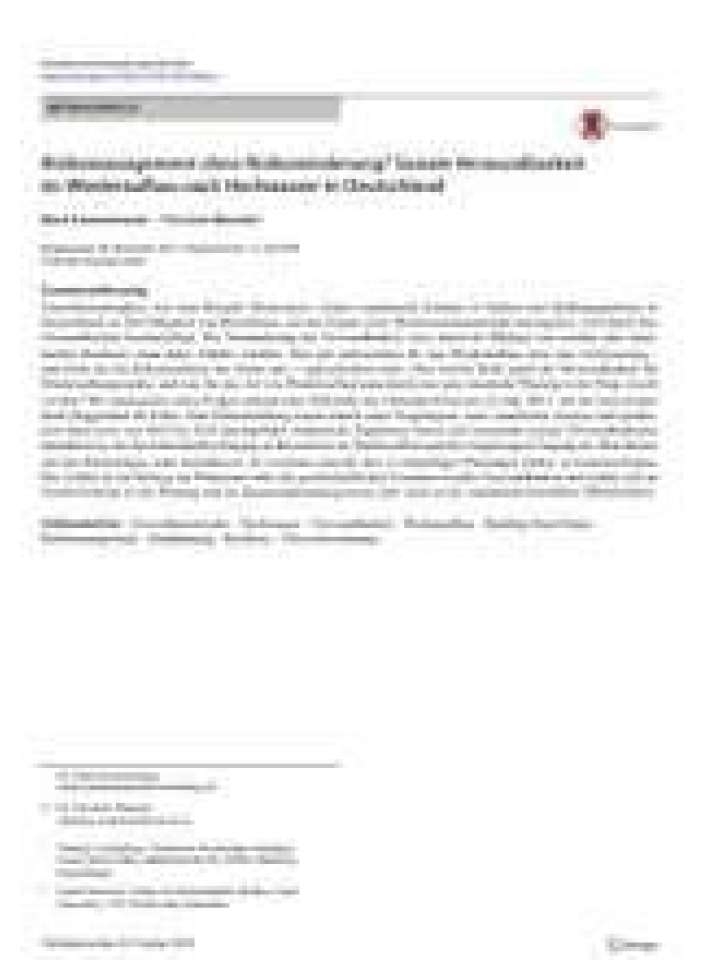Risk management without risk reduction? The role of social vulnerability in post-disaster recovery after floods in Germany
Based on a case study of the flood disaster of the river Danube in 2013, and particularly the Bavarian city of Deggendorf, this study investigates the role of social vulnerability in recovery projects and planning. From 2013 to 2018, data was collected by means of a survey, a spatial analysis and qualitative interviews.
The results show how particular social vulnerabilities strongly influence the individual access to resources required during recovery and reconstruction as well as the capacity to deal with long-term disaster impacts. It concludes that recovery and development planning needs to acknowledge such vulnerabilities to a higher degree. The article contributes to discussions on the societal and governance causes for social vulnerability and is oriented towards actors responsible for planning and disaster management as well as the increasingly impacted public.
This paper is published in German.
